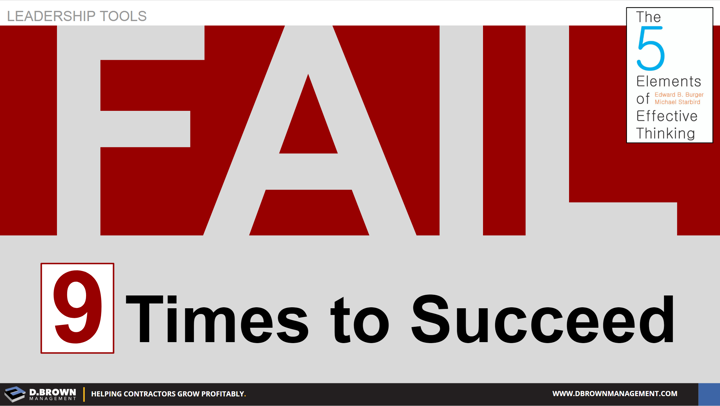The ability to accept failure as part of the learning process is just one of the great insights from: The Five Elements of Effective Thinking
Most decisions in life and business are not the equivalent of jumping out of a plane without a parachute. Too many times people spend more time delaying rather than just starting to move forward.
This does not mean moving forward without a plan when a clear plan is possible. What it does mean is that many times when you are learning something new it is best to just get started climbing the mountain.
“Success consists of going from failure to failure without loss of enthusiasm.”
“I have not failed. I've just found 10,000 ways that won't work.”
If you are inventing the light bulb then you probably have to plan to fail 10,000 times.
For most other things in business you should put the number of 10 in your head - like a punch card at the local sandwich shop.
Make the best plan you can and move quickly to execution. Fail. Study the failure. Adjust. Repeat.
Get excited because you are 10% of the way there!
Most of the time you will succeed within 10 tries and it will have a huge positive impact on your business as long as you learned from all the failures.

